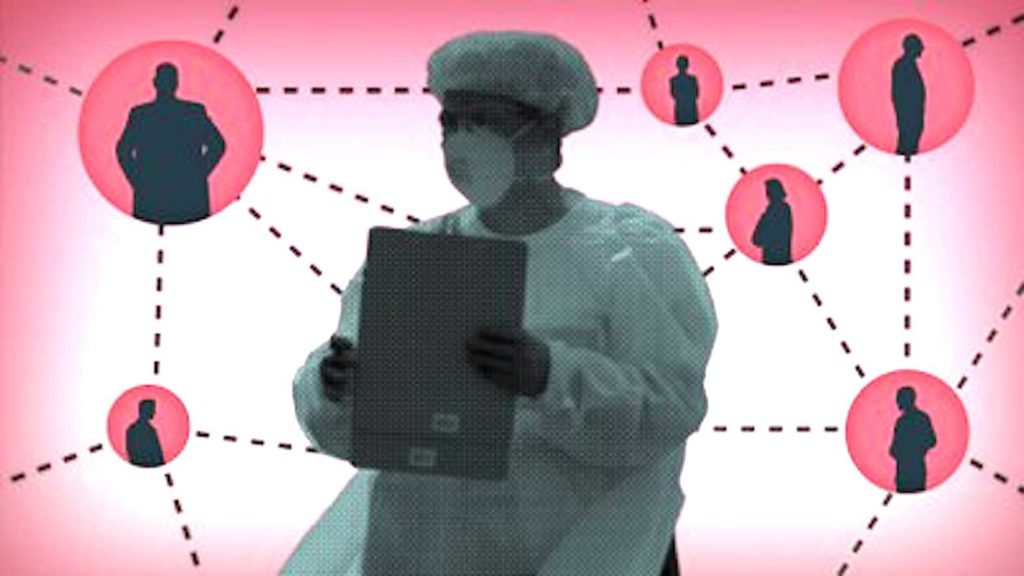What is Covid contact tracing, and how does it work?

PETER HAMLIN / AP
What is contact tracing, and how does it work with COVID-19?
The goal of contact tracing is to alert people who may have been exposed to someone with the coronavirus, and prevent them from spreading it to others. Health experts say contact tracing is key to containing the virus and allowing places to reopen more safely.
But the process isn’t easy.
After a person tests positive for the virus, a contact tracer would get in touch with the person and attempt to determine where they have been and who they were around.
The focus is on close contacts, or people who were within 6 feet of the infected person for at least 10 minutes or so. Those people would then be asked to self-isolate, monitor themselves for symptoms and get tested if needed.
For those showing symptoms, the tracing process would start all over again.
Contact tracing is done in a variety of ways around the world. But a common issue is that determining who a person has been around can get harder as gatherings with friends and family resume, and as bars, restaurants and other places start reopening.
Health officials could also become overwhelmed with cases. In the U.S. for example, local health departments may rely on automated texts to alert people who may have been exposed to an infected person. Health officials prefer to call people if possible because it can help build trust. But some people never return calls or texts.
There’s also pressure to act quickly. Ideally, most of a person’s contacts would be alerted within a day.

